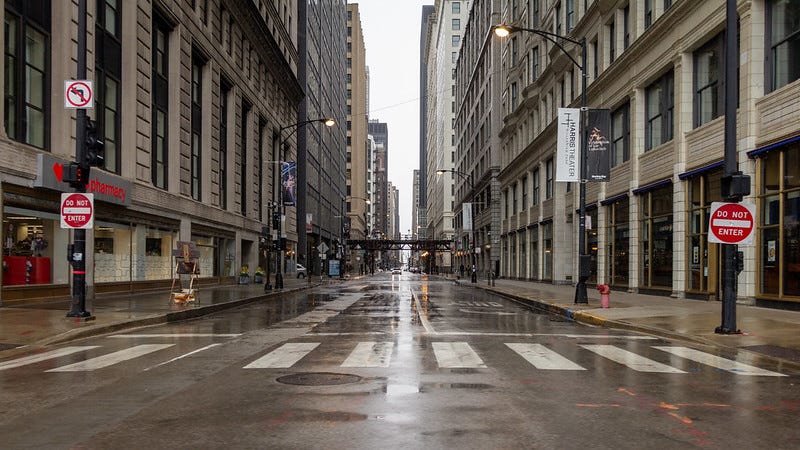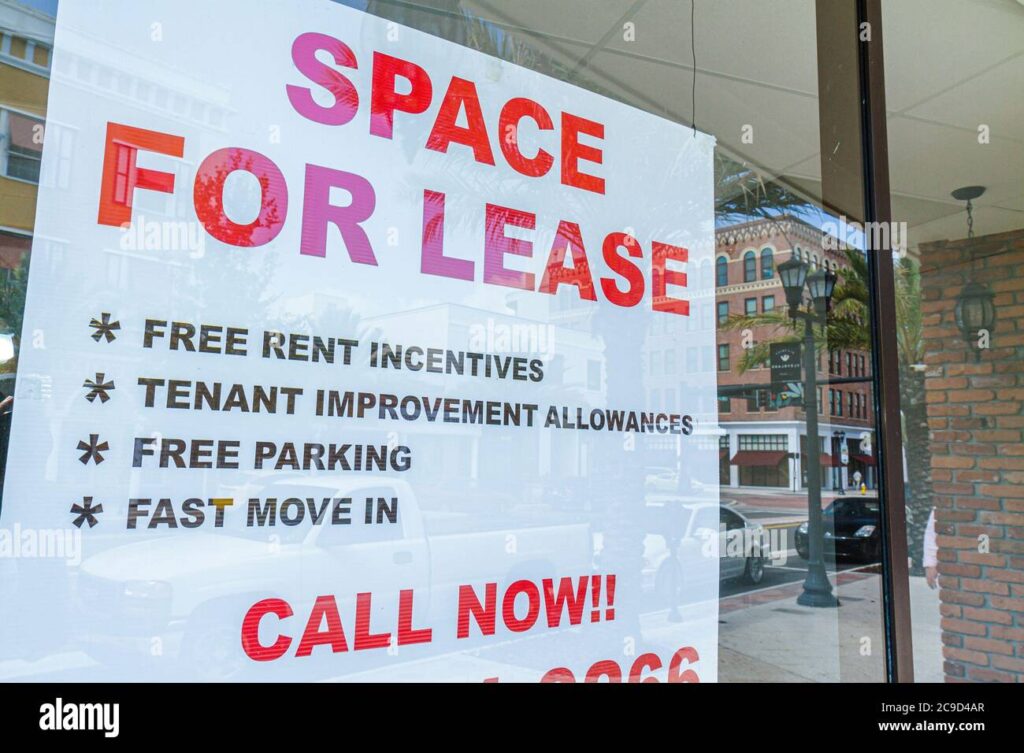Welcome to the topic “The Real Cost of Empty Chicago Offices: How Downtown Vacancies Affect You in Real Dollars“
While the world has slowly and steadily made it back to normal after the pandemic, the commercial real estate office market has been in a downward spiral for quite some time, as remote work has become a favorite among many.
No wonder Downtown Chicago, once the bustling hub of all business activities, is now grappling with record-high office vacancy rates. At the halfway point of 2024, it is currently standing at a whopping 25.8%, yet another record for vacancies since the start of the COVID-19 pandemic. While it may seem like an issue that is bothersome for commercial real estate alone; the implications of these vacancy rates extend far beyond just the office owners and commercial estate landlords.

The broader effect of office vacancy rates on Chicago residents, both homeowners and renters, is less understood but equally important. Think revised taxations! If you are a Chicago resident struggling to digest rising property taxes and increasing rent, read along as we cover how the preference for remote work and resulting office vacancies is surprisingly impacting ordinary Chicagoans.
Current Situation
Vacancy Rate
In 2024, 25% of all downtown Chicago offices are vacant, a rate much higher than the 13.4% rate observed back in 2018. Driven largely by remote work, technological advancements, and changing business needs, the lack of need for traditional office spaces has contributed to this vacancy and exacerbated the financial strain on Chicago.
Reduced Assessed Values
Commercial properties contribute to 36% of the total property taxes collected in Chicago, and office buildings account for nearly half of that share. Pre-pandemic, high occupancy rates contributed to higher assessed property values and therefore higher taxes. Now that the office occupancy rates have dropped, these office buildings have lower assessed values and their taxes have been reduced. But have the city’s expenses gone down? No!
Chicago’s Tax Collection Mechanism and Impact on Tax Revenue
The city of Chicago relies heavily on tax revenue from both residential and commercial properties to keep the wheels of routine municipal activities going. These taxes enable the city to maintain important sectors such as public safety, infrastructure and education. Before the pandemic, the downtown area thrived with a bustling workforce, leading to a robust tax base that supported the city’s services. However, with the current high vacancy rates, the financial contributions from these commercial properties have drastically decreased, creating a budgetary gap for the city.
Resulting Financial Adjustments
Revenue Needs
With office buildings now contributing way less to the city’s tax revenue, Chicago is facing a considerable revenue shortfall, especially because the city’s budget has not decreased in line with the drop in commercial tax income. Instead, the demand for funding has remained constant or even increased due to inflation and the rising costs of different municipal services.
Shift to Residential Taxes
To make up for this revenue shortfall and maintain its budget, Chicago’s government has turned to raising property taxes on residential properties with new assessment efforts.
For instance, from 2022 to 2023, the Cook County equalization factor went from 2.9237 to 3.0163. This appearingly small difference in the equalization factor can significantly increase tax bills of properly assessed properties. Since property taxes are collected in arrears, homeowners will bear the brunt of these 2023 increases as they pay their taxes in 2024.
Impact on Chicago Residents
Office Owners
The current high vacancy rates in downtown Chicago have significantly impacted the owners of office buildings and commercial spaces. They are experiencing a dual financial blow. Their buildings are sitting empty and therefore they are earning considerably less revenue as tenants have either downsized or completely vacated the spaces.
In addition, the lower occupancy rate has led to reduced assessed values of properties. Although this may appear beneficial in regards to cutting property tax expenses, ultimately a lower assessed property value is never a good thing. The high vacancy rates can in the area can only further jeopardize investments and the overall economic health of the downtown area.

Homeowners
As the city attempts to raise taxes to compensate for the lost revenue from office buildings, Chicago property tax assessments are skyrocketing for homeowners. Some are even seeing increases of over 100%. This increase in property taxes is burdensome for owners of single-family homes and condos who are already struggling with fixed incomes and rising inflation.
Renters
When it comes to suffering due to the burgeoning property taxes, renters are no exception. Landlords who have to pay higher property taxes often pass these costs onto renters by increasing their rents. As property tax rise further, so will the rents, making a vicious cycle of rising costs that can lead to displacement and increased housing insecurity in Chicago.
Broader Implications
Overall Economic Strain
The interconnected nature of commercial and residential tax impacts in Chicago highlights the broader economic challenges posed by high downtown office vacancy rates. As property taxes continue rising, residents may end up with less disposable income and limited ability to spend on local businesses and services. This can create a cycle where decreased consumer spending further worsens the local economy.
Future Outlook
Looking ahead, the ongoing effect of high office vacancy rates on Chicago’s residential property market and taxation is definitely concerning. If the trend doesn’t stop anytime soon, which is what is predicted, Chicago City will see a further decline in commercial property values and increased financial strain on its residents.
To prepare for a different fate, the city and its residents can find ways to revitalize the downtown area going forward and attract businesses back to the loop to stabilize the economy.
Chicago Is Not Alone
Chicago is not alone in grappling with rising vacancy rates and facing related challenges. Other major US cities, like San Francisco and New York, are also in the same boat with high office vacancy rates and heightened financial strain on their residents. Across the nation, the commercial real estate market is facing significant headwinds.

Conclusion
As Chicago comes to terms with the negative consequences of high downtown office vacancy rates, one thing is as clear as day: property taxes for residents, both homeowners and renters, are only going to go up. Recent reassessments have already highlighted significant increases in residential property values and, thereby, higher tax bills for many.
With the city’s dependence on property tax revenue for optimal functioning, as the financial burden is shifting from commercial to residential properties, residents must brace for the impact, whether in the form of increased rents or higher mortgage payments.
Even though the situation may feel daunting, by staying informed and engaging with local officials, you can help shape the policies that balance the needs of your community and build a more resilient future for all Chicago residents.
Also read: How Do Interest Rates Affect the CRE Market?
TAGS